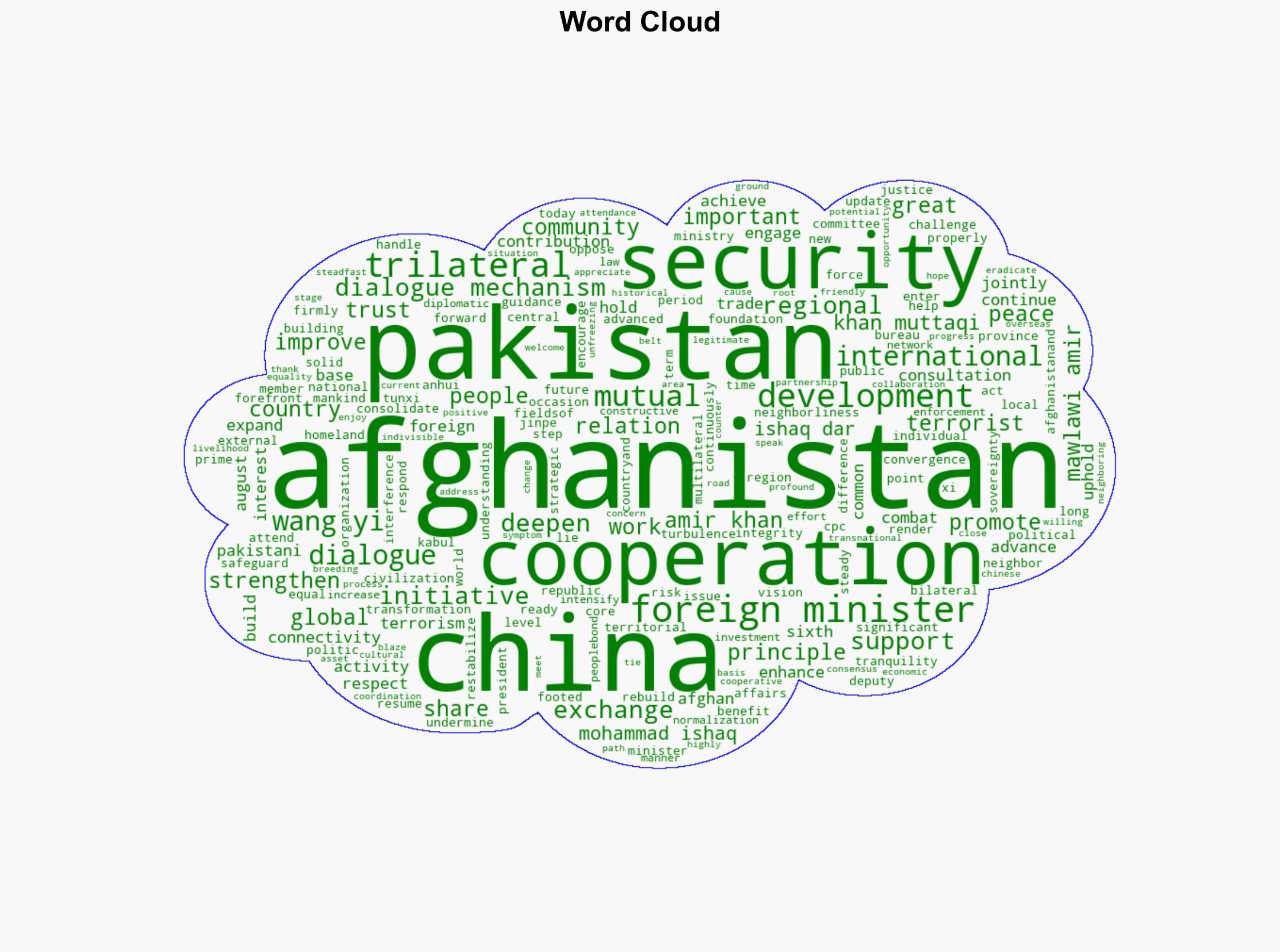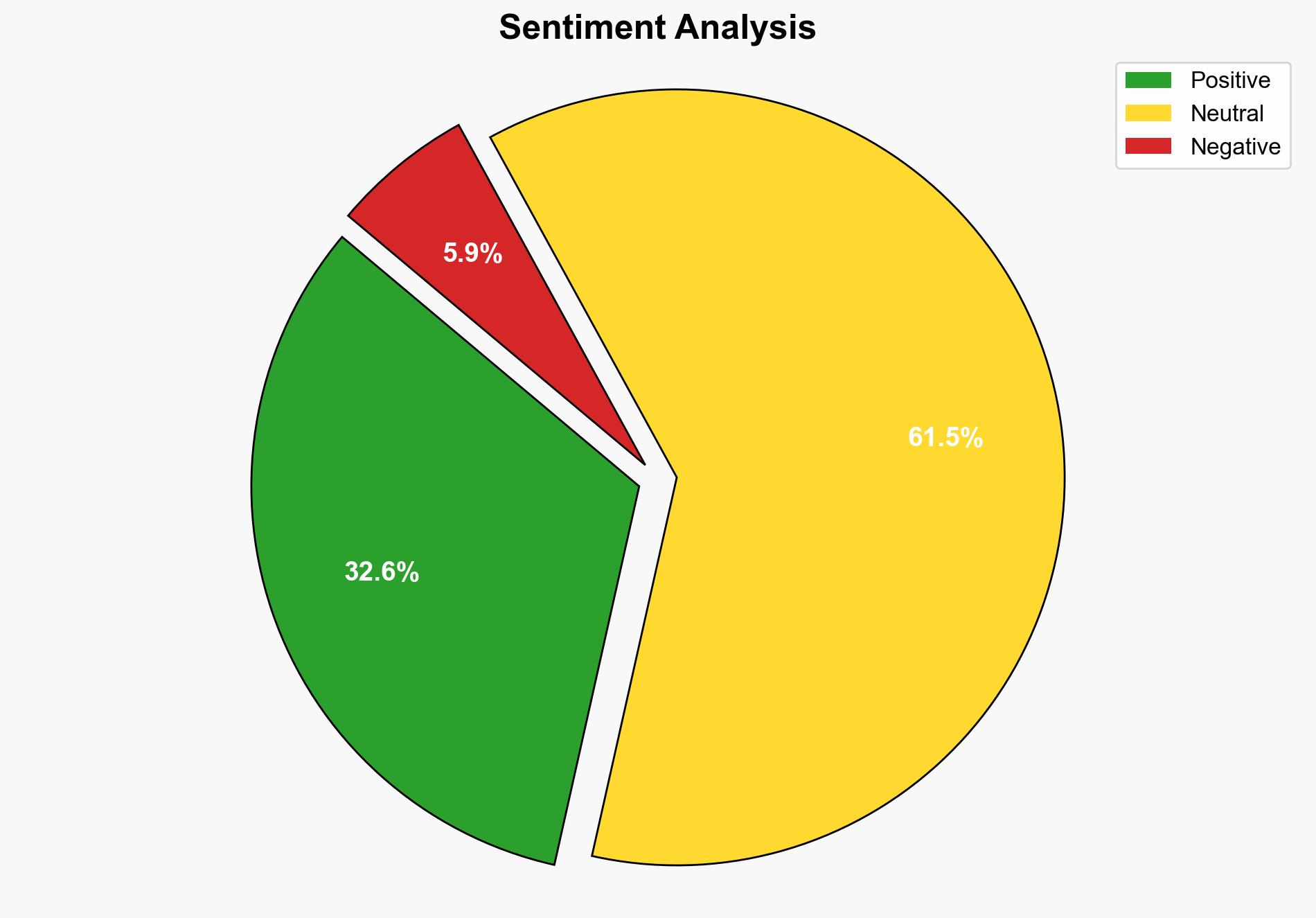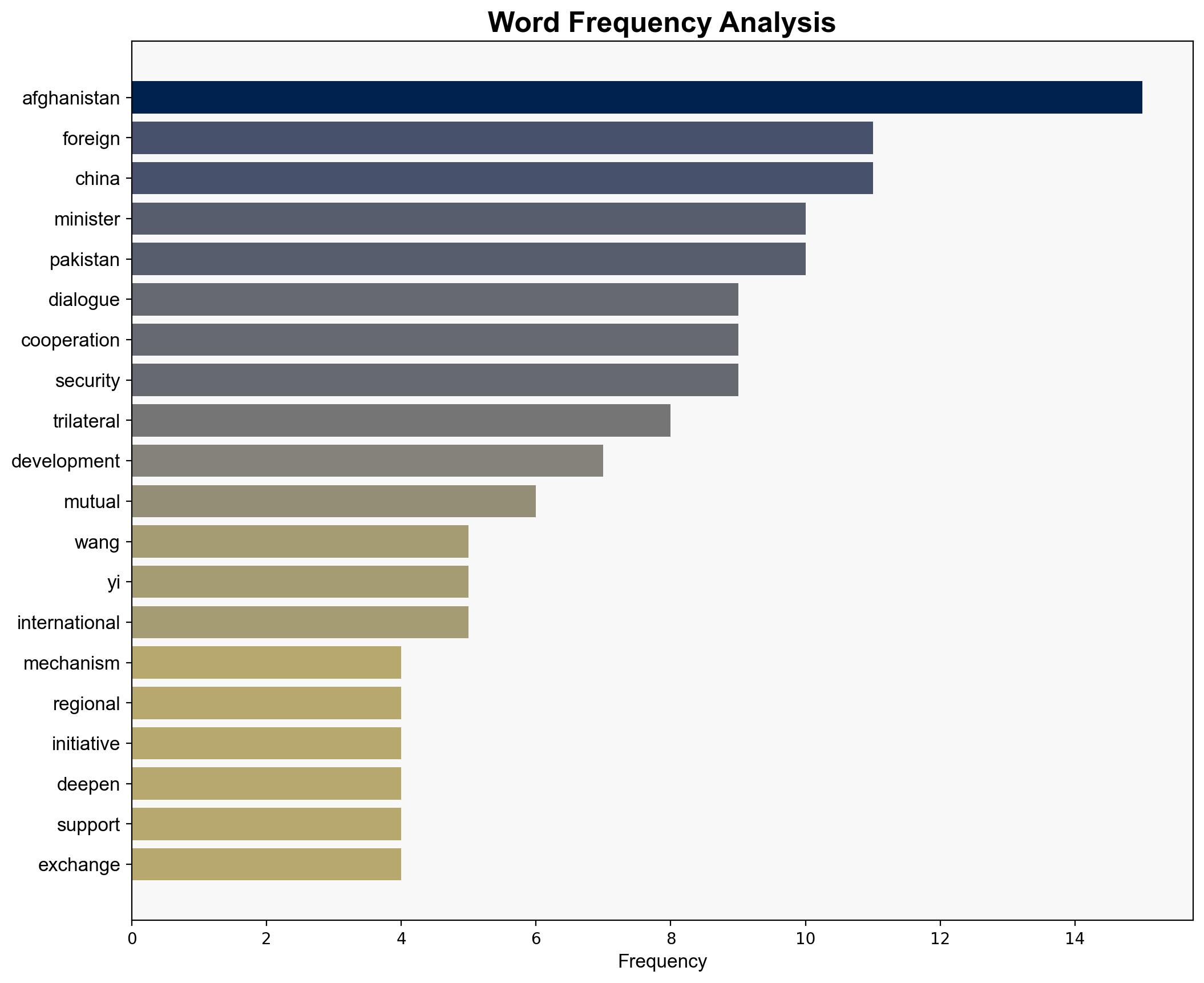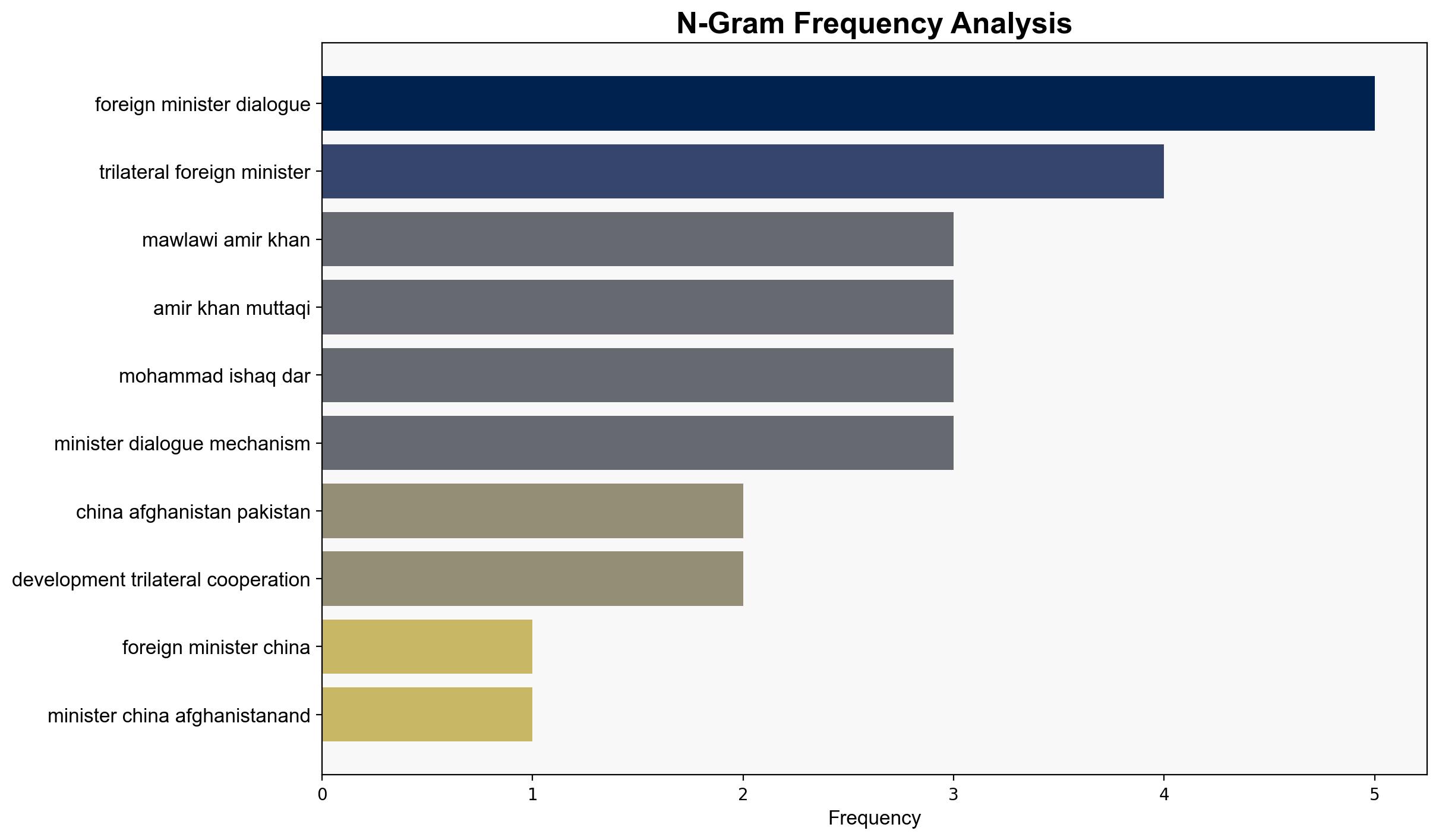Foreign Ministers of China Afghanistan and Pakistan Hold the Sixth Dialogue – Globalsecurity.org
Published on: 2025-08-23
Intelligence Report: Foreign Ministers of China Afghanistan and Pakistan Hold the Sixth Dialogue – Globalsecurity.org
1. BLUF (Bottom Line Up Front)
The trilateral dialogue between China, Afghanistan, and Pakistan signifies a strategic alignment aimed at enhancing regional stability and cooperation. The most supported hypothesis is that China seeks to solidify its influence in the region by fostering diplomatic and economic ties, leveraging its initiatives to counter external influences. Confidence level: Moderate. Recommended action: Monitor developments in regional cooperation and assess impacts on geopolitical dynamics, especially concerning U.S. and Indian interests.
2. Competing Hypotheses
1. **China’s Strategic Influence Hypothesis**: China is using the trilateral dialogue to expand its influence in South Asia by promoting economic and security cooperation, countering Western influence, and stabilizing Afghanistan to secure its Belt and Road Initiative (BRI) interests.
2. **Regional Stability and Security Hypothesis**: The dialogue primarily aims to enhance regional stability and security by addressing terrorism and fostering economic development, with China, Afghanistan, and Pakistan equally invested in a stable regional environment to prevent spillover effects of instability.
Using ACH 2.0, the first hypothesis is better supported due to China’s active promotion of its global initiatives and its strategic interest in stabilizing Afghanistan for BRI expansion.
3. Key Assumptions and Red Flags
– **Assumptions**:
– China views Afghanistan as a critical node in its BRI.
– Pakistan and Afghanistan are willing to align with China’s strategic goals.
– **Red Flags**:
– Lack of explicit commitment from Afghanistan and Pakistan to China’s broader strategic initiatives.
– Potential underestimation of internal political dynamics in Afghanistan affecting trilateral cooperation.
4. Implications and Strategic Risks
– **Geopolitical Implications**: Enhanced China-Afghanistan-Pakistan cooperation could shift regional power dynamics, potentially marginalizing U.S. influence and creating friction with India.
– **Security Risks**: Increased cooperation might provoke regional terrorist groups, leading to potential escalations or retaliatory actions.
– **Economic Risks**: Economic dependencies on China could increase, affecting the sovereignty of Afghanistan and Pakistan in decision-making.
5. Recommendations and Outlook
- Monitor the implementation of trilateral agreements and their impact on regional stability.
- Engage in diplomatic dialogues with regional stakeholders to balance China’s influence.
- Scenario Projections:
- Best: Successful cooperation leads to enhanced regional stability and economic growth.
- Worst: Increased Chinese influence leads to regional tensions and economic dependency.
- Most Likely: Incremental progress in cooperation with periodic challenges due to regional instability.
6. Key Individuals and Entities
– Wang Yi
– Mawlawi Amir Khan Muttaqi
– Mohammad Ishaq Dar
7. Thematic Tags
national security threats, regional stability, economic cooperation, geopolitical dynamics




